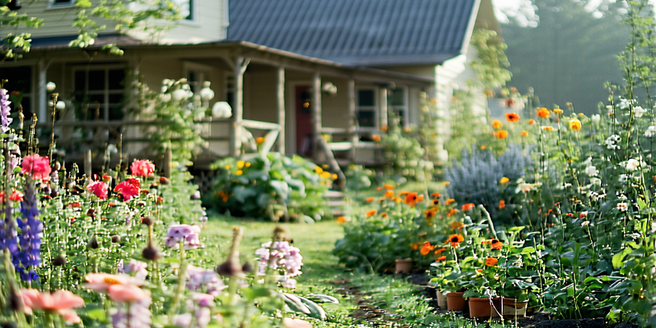Affordable Rural Living Opportunities

Exploring the Benefits of Rural Living
Rural living offers a unique lifestyle that combines peace, nature, and a sense of community. Away from the bustling city life, rural areas provide a serene environment where you can enjoy vast landscapes and natural beauty. This lifestyle encourages a slower pace that can reduce stress, offering a healthier mental state. The sense of community is often stronger, with residents engaging in local events and supporting one another. Additionally, rural living can present the opportunity to adopt a more self-sustained lifestyle, such as growing your own food or supporting local farm stands. The tranquility and space of the countryside create an ideal environment for those seeking a break from urban pressure, allowing one to embrace a simpler, yet fulfilling life.
Cost-Effective Housing Options in Countryside Areas
One of the most attractive aspects of moving to a rural area is the affordable housing market. Unlike city centers, where real estate prices can be exorbitant, rural regions often offer more reasonably priced homes and larger plots of land. This affordability enables individuals to invest in property and have the possibility of owning a home, which may not be feasible in urban settings. The lower property taxes are another financial advantage, adding to the cost-effectiveness of rural living. Renovation costs can also be lower, allowing people to customize older homes to their liking without facing city price tags. Overall, the real estate opportunities in the countryside provide an accessible path toward homeownership and greater financial stability.
Local Job Markets and Economic Opportunities
While rural areas are traditionally seen as lacking diverse job opportunities, the landscape is changing. With advances in technology and the rise of remote work, many people can now choose to live rurally without sacrificing their career ambitions. Additionally, local job markets are expanding, with growth in agriculture, renewable energy, and small businesses. Seasonal work and tourism also contribute to the rural economy, providing additional employment avenues. Local governments are increasingly investing in infrastructure and economic development, creating new opportunities for entrepreneurs and established companies alike. This transformation is making rural areas increasingly attractive for individuals seeking a balanced life with a promising economic future.
Community Engagement and Support Systems
In rural areas, community engagement is an integral part of life. Residents often come together for local events such as farmers’ markets, festivals, and town meetings, fostering a sense of belonging and connectedness. Support systems in rural communities are strong, with neighbors frequently assisting each other, whether it’s through sharing tools, exchanging advice, or organizing local volunteer efforts. Schools and churches often serve as community hubs, offering numerous programs and resources for residents of all ages. The close-knit nature of rural living encourages relationship-building and community support, which can be immensely beneficial for individuals and families seeking an inclusive and nurturing environment.
Environmentally Friendly Lifestyle Choices
Rural living often promotes environmentally friendly lifestyle choices simply by the nature of its setting. With access to green spaces and agricultural lands, residents often have the opportunity to engage in sustainable practices such as gardening, composting, and supporting local farms. The reduced pace of life allows for more conscious consumption, with many rural inhabitants choosing to minimize waste and prioritize eco-friendly products. The rural community often fosters a greater appreciation for the natural world, motivating its residents to protect and preserve it through collective environmental efforts. This approach to living attracts those committed to leaving a smaller carbon footprint and achieving long-term sustainability.
How to Transition Smoothly to Rural Life
Transitioning to rural life can be a smooth and rewarding process with some careful planning and adaptability. Firstly, researching the area and understanding local customs will ease integration into the community. It’s advantageous to engage with local groups and attend community events to build relationships and find support. Understanding the practical aspects, such as commuting routes and services available, will help in day-to-day management. Embracing the slower pace is key to enjoying this lifestyle; learning to appreciate and adapt to rural life’s nuances lays the foundation for contentment. By approaching the transition with an open mind and willingness to engage with the rural community, one can create a fulfilling and harmonious life.